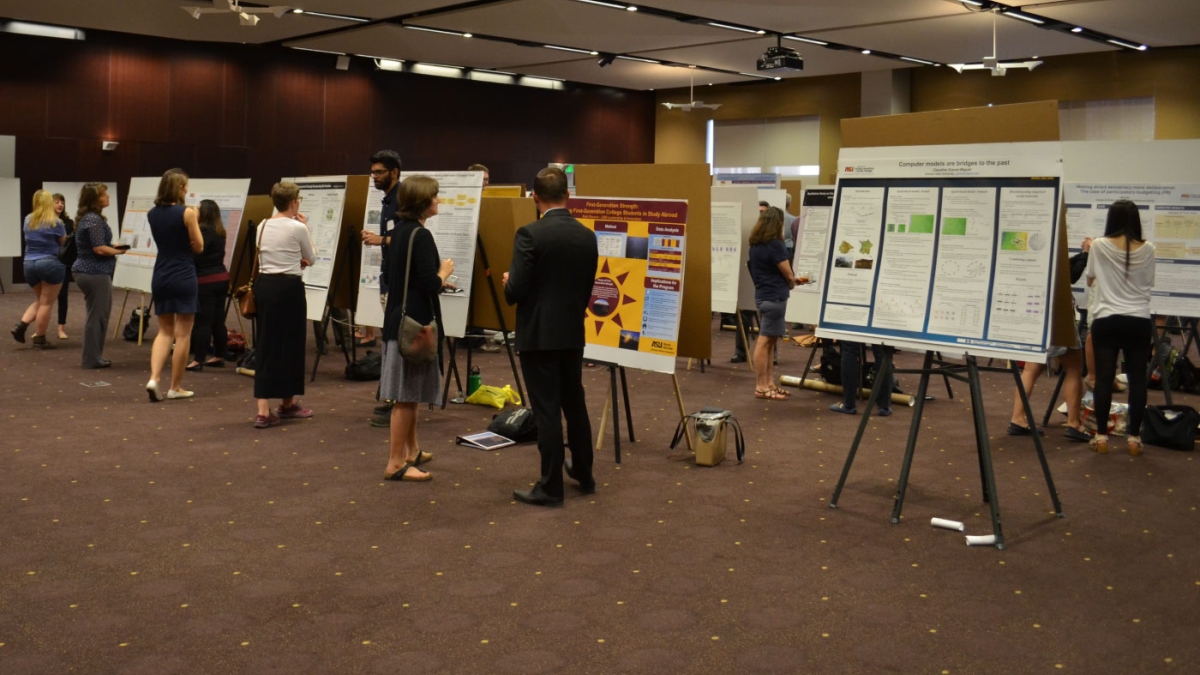In the study of government, tracking corruption in political systems is important. Changing patterns in corruption allow for researchers to better understand the shifting social, economic, and political dynamics at play within a country or region.
Arizona State University graduate student Jennifer Kartner's research on the corruption in democracies has earned her recognition in the Institute for Social Science Research's poster contest. Kartner, who is part of the School of Politics and Global Studies, examined how competition in politics and the economy affects the changing dynamics of corruption, suggesting that there exist qualitative differences in corruption forms.
The poster contest was held for graduate students conducting research at ASU in the social-science arena. The first place prize included a grant of $1200, and required students to submit an abstract as well as a 3’x4’ poster that covered their research. These posters were then to be presented at the competition held in late April. Nearly 70 submissions made it in to the competition, including one belonging to Kartner.
After presenting her poster, Kartner was selected as the winner of the competition in the category "research proposals."
Kartner decided to focus on Poland and Hungary over a 20 year period, analyzing how corruption within two industries in each country transformed with the introduction of competition in politics and the economy. To capture the underlying mechanisms that lead to a change in corruption patterns, she differentiates between corruption types, such as state capture, and activities, for example, lobbying.
“Kartner's research will enable us to understand why countries that adopt policies often thought to help reduce corruption, such as introducing market-based economic competition and having competitive elections, sometimes merely wind up with different patterns of corruption, rather than less corruption,” said Carolyn Warner, who is Kartner’s faculty advisor. “Kartner's research is a key step in our being able to suggest alternative solutions to the problem of corruption in newly democratizing countries.”
Kartner will continue her research throughout the rest of 2017 and spring 2018, including going on field research trips to Poland and Hungary. There she will conduct semi-structured interviews with experts from various fields, including law enforcement, parliamentarians, academics, and the civil sector. She will then analyze her data, draft case studies, and present her findings to different conferences. She will ultimately use this study as her thesis, which she will defend next year.
More Law, journalism and politics

CBS News president to give keynote address at Cronkite School’s spring convocation
Ingrid Ciprián-Matthews, president of CBS News, will serve as the keynote speaker at Arizona State University’s Walter Cronkite…

School of Politics and Global Studies director's new book explores mass violence
Why do people commit atrocities and why are certain groups, including religious and ethnic, more vulnerable to large-scale…

ASU faculty contributing to improvement of Wikipedia
Many academics have a love-hate relationship with Wikipedia. While the website has information about almost anything you can…
